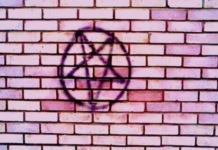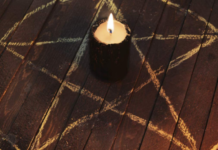Witchcraft is, literally, the ‘craft of the witch’. Which is the skill of being able to work magick; especially magick utilizing personal power in conjunction with the energies within stones, herbs, colours, and other natural objects. While this may have spiritual overtones, witchcraft, by this definition is not a religion. However, some followers of Wicca incorrectly use this word to denote their religion.
A witch was anciently, a European practitioner of the remnants of pre-Christian folk magick, particularly that relating to herbs, healing, wells, rivers and stones (ie: One who practices witchcraft).
Later, this term’s meaning was deliberately altered to denote demented, dangerous, supernatural beings who practiced destructive magick and who threatened Christianity. This change was a political, monetary and sexist move on the part of organized religion, not a change in the practice of witches. This later, erroneous meaning is still accepted by many non-witches today.
Some members of Wicca to describe themselves also use this word to describe what they are. However, witchcraft can be practiced by people of any faith. One can be a Wiccan witch, a Jewish witch, a Christian witch, a Muslim witch, etc.
Wicca is a contemporary Pagan religion with spiritual roots in Shamanism and the earliest expressions of reverence of nature.
Among Wicca’s major motifs are: reverence of the Goddess and the God; reincarnation; magick; ritual observance of the Full Moon; astronomical and agricultural phenomena; spheroid temples, created with personal power, in which rituals occur.
Not all witches are Wiccan, and not all Wiccans are witches, as witchcraft by itself is not a religion, and not all Wiccans practice magick.








